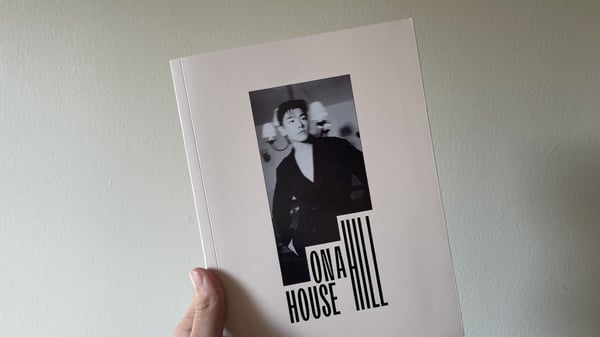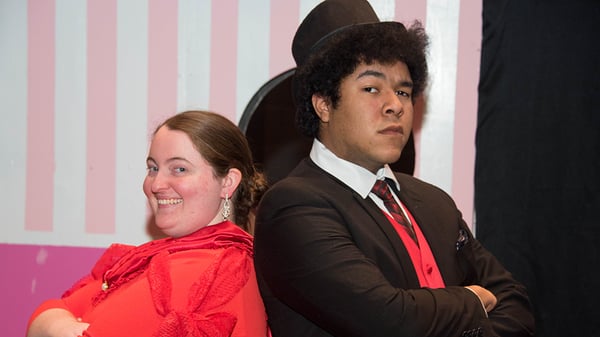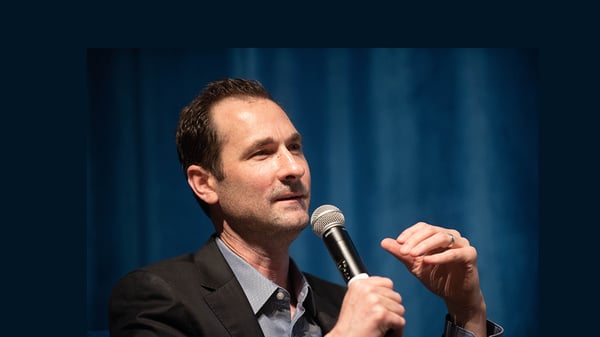Bowlero and Booth’s Corner tops this week’s list of fun things to do in Aston.
Students Let Their Voices Be Heard at Pizza and Politics
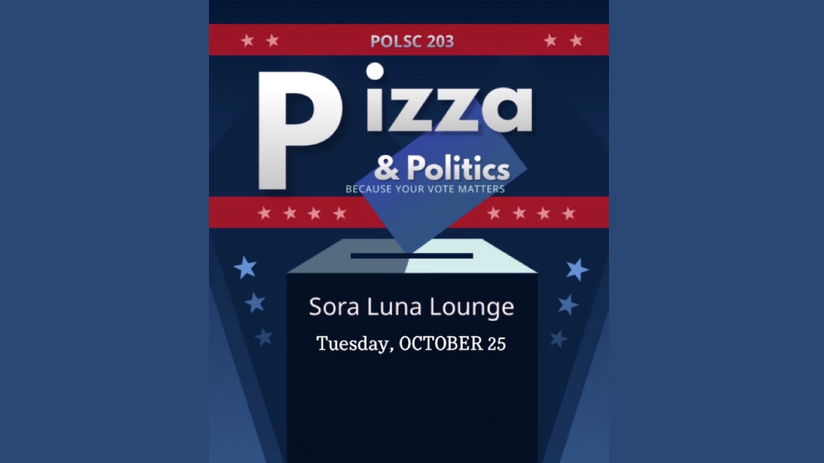
On October 25, Dr. Rob McMonagle and his political science class invited students to gather in the Sora Luna Lounge to watch the Fetterman-Oz debate. The candidates for Pennsylvania’s open U.S. Senate seat sparred for a full hour, but both left most of the 50 students unimpressed.
The evening began with students piling into the lounge and sitting on couches and at tables with friends. Their chatter hummed over the room, as they ate their pizza, drank their sodas, and prepared for the debate to soon come on. “We’ve always had a really good turnout for presidential debate watches. This is the best we’ve had really for a midterm race; I think the students are energized,” McMonagle said commenting on the occupancy of the room.
The debate started screening promptly at eight, where Democratic Candidate John Fetterman, and Republican Candidate Mehmet Oz took the stage. The two addressed issues such as fracking, the economy, and foreign threats to the U.S, while also throwing punches at each other in the process of answering.
Fetterman frequently used the term “the Oz rule” (“if he’s on TV, he’s lying”) to poke fun at his counterpart, Oz retaliating by pointing out the “lies” about him in Fetterman’s ad campaigns. Some of these moments even garnered reactions from the student audience in the lounge. The tension was thick when Fetterman froze, and the annoyance on some of the students’ faces was prominently displayed when Oz claimed he didn’t sell weight loss drugs.
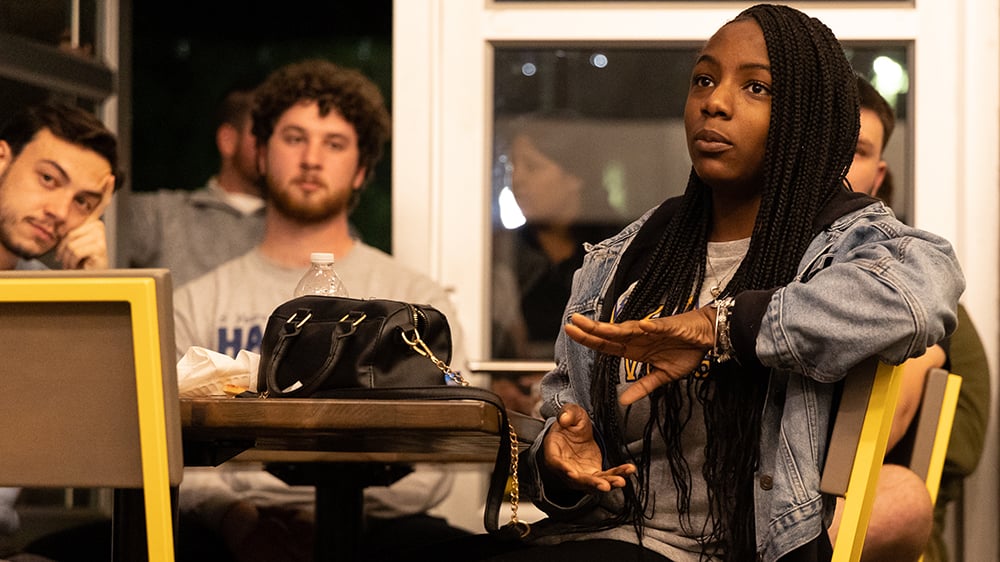 Zykia Wright makes a point during Pizza and Politics. (Photo courtesy of WHYY)
Zykia Wright makes a point during Pizza and Politics. (Photo courtesy of WHYY)
After the debate ended there was a half an hour student panel and town hall to discuss what everyone had just watched on tv.
Students expressed that there was no definite winner from what they saw. Neither candidate really answered the questions fully, dancing around them instead. They claim Oz did outperform Fetterman in the talking aspect. “He [Oz] spoke very well, he basically articulated his words very well, he answered his questions literally at the ding,” one student commented.
“Dr. Oz is a tv show host, so he has a lot more experience talking to people when it comes to tv, projecting what he wants to get out on the television” sophomore Khyeem Jones said, noticing the edge Oz had from his tv show, The Doctor Oz Show that lasted 13 seasons.
Ultimately though there were some people who gave Fetterman credit for even going up and speaking, due to the challenges he faced, like his auditory processing disorder and his opponent being an excellent speaker on tv. “He was very brave for even going up there,” a student said.
Though both candidates were on stage debating for 55 minutes, students felt as though they didn’t talk nearly enough about the issues that are important to them. College voters ranked issues such as climate change and abortion at the same level as the economy and Neumann students felt as though these topics weren’t addressed well enough.
The lack of focus on issues was something that student Peyton McPeak specifically took interest in. “They barely motioned the climate crisis that we’re in. The only thing that they did mention was fracking and you know that doesn’t encompass everything with climate change.” McPeak
continued on the issue of abortion claiming the extent of the topic was limited to Fetterman saying “Yeah I support Roe v Wade.”
As the question came up of who this debate was geared towards everyone seemed to agree that this debate felt as though it was for the older generations such as students’ parents and grandparents. Student panelist Lelah Tehmeh commented on the candidates’ views on fracking, which is an important issue for older voters. “For me, as someone who cares about the climate, as somebody who cares about this country, I’m listening to this and they’re not talking about the serious issues and that scares me,” she said.
Another student panelist, Dillon Manchester, then posed a new question for his fellow students: Is Generation Z the reason that these candidates are targeting issues related to older age groups, due to voter turnout?
While it was agreed that the younger generation doesn’t vote as much as they should, several students agreed that they never learned the importance of voting. “We don’t know the importance of voting maybe because it wasn’t stressed enough. We weren’t ever welcomed in those spaces, like told that our voices are important, shown that our voices are important,” Tehmah said, adding that “Even the debate we just watched, the topics that they talked about maybe they just glossed over something they thought the youth would care about, but they didn’t fully engage us in conversation, they didn’t make us feel like we had a say in this, that’s the issue”
2020 exit polls revealed that the largest voting group was ages 45-64 at 38%, then ages 65 or over at 22%, with ages 18-29 only being responsible the 17% of the total voters.
McMonagle advised young voters, whether voting for the first time, or having voted before, to go to “Vote.org, a useful source to find out, for instance, where your polling location is. You could check your registration status and other questions that could be easily answered within a minute or two. Another good tool is Ballotpedia.org. Students could go there, type in their address and pull up a sample ballot of all the candidates who are running in your area”
Pizza and Politics has been ongoing since 2004. McMonagle said this year his students took extra steps to organize and promote the event. “There are a lot of logistical hurdles, and I really have to commend them for this,” McMonagle said regarding class involvement. He also added that the student government paid for the pizza this year. Normally, he pays for the food.



